
STATE OF THE
WORKER SUMMIT
OCTOBER 9, 2024
LOS ANGELES, CA
STATE OF THE WORKER SUMMIT—
A BLUEPRINT FOR THE FUTURE
Key Takeaways From the Summit
-
At the heart of the discussion was the concept of radical inclusivity—ensuring not only diverse representation at decision-making tables but also meaningful participation that drives policy and labor reforms. Speakers stressed the importance of creating spaces where marginalized voices are not just welcomed but required to have a seat at the table to drive change.
-
By modernizing governance frameworks, cities and counties can streamline operations, enhance transparency, and ensure that policies are implemented more efficiently and equitably across localities in California.
-
California boasts one of the most robust philanthropic ecosystems in the world, with institutions like the Weingart Foundation, the California Community Foundation, The California Endowment and others leading the way. Summit participants emphasized the need to foster collaboration among diverse stakeholders—labor leaders, business executives, policymakers, academics—in partnership with philanthropists to drive economic growth and equitable development.
-
A recurring theme at the Summit was the need to diversify access to capital to drive change. Public pensions, private equity, and venture capital must be leveraged to benefit marginalized communities. Speakers also discussed how the public should demand greater accountability in how funds are allocated, ensuring that investments address barriers to growth in underserved areas.
-
Federal, state and local governments spend hundreds of billions of dollars on public projects and capital improvements. This money goes overwhelmingly to large contractors who have economic and political influence. Minority- and women-owned firms receive a disproportionately small portion of this funding. Changing the process and standards by which contracts are awarded could have significant impact on the lives of workers employed by these historically disadvantaged business owners.
-
The importance of measurable outcomes was another focal point. By tracking the impact of inclusive policies and programs, stakeholders can adjust policy and strategy to ensure fair and equitable results. This approach is vital for improving quality of life, health outcomes, educational attainment, and socio-economic mobility across California.
-
Achieving equitable prosperity requires a unified approach. Discussions of business development must include labor leaders and workers, and policy decisions must prioritize inclusivity. By fostering collaborative ecosystems and holding institutions accountable, California can lead the charge in creating a more just and equitable economy.
-
Economic equity in California requires addressing critical workforce challenges that perpetuate disparities. Key issues and opportunities addressed at summit included:
Living Wage and Cost of Living: The gap between wages and the cost of living continues to widen. Workers need wages that reflect the true cost of housing, healthcare, and basic necessities to ensure economic stability.
Gender Pay Gaps: Women, particularly women in marginalized communities, remain underpaid compared to their male counterparts. Closing the gender pay gap is essential to creating equitable opportunities in the workforce.
Access to Benefits: Many workers, especially those in the gig economy and low-wage industries, lack access to critical benefits like healthcare, retirement savings, and paid leave. Expanding access to benefits is key to building a more resilient workforce.
Affordable Housing: Housing costs are a significant barrier for workers, with many spending an unsustainable portion of their income on rent or mortgages. Addressing affordability through innovative housing policies and public-private partnerships is essential for economic inclusion.
Workforce Development Programs: Programs must prioritize “up-skilling” and “re-skilling workers” to meet the demands of a rapidly evolving job market.
Labor and Business Development: Labor leaders must be included in business development discussions so they can advocate for fair wages, safe working conditions, and equitable benefits.
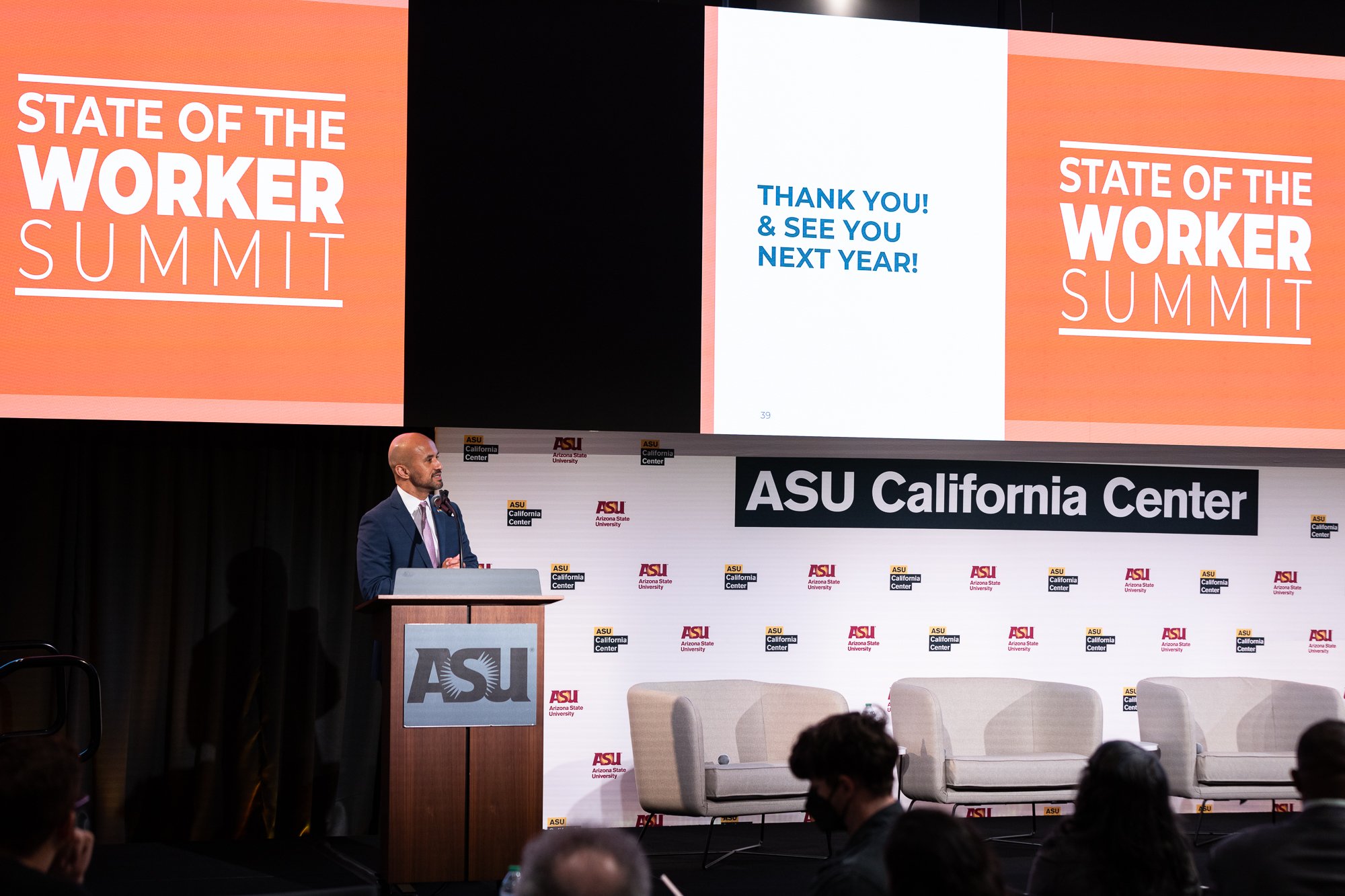

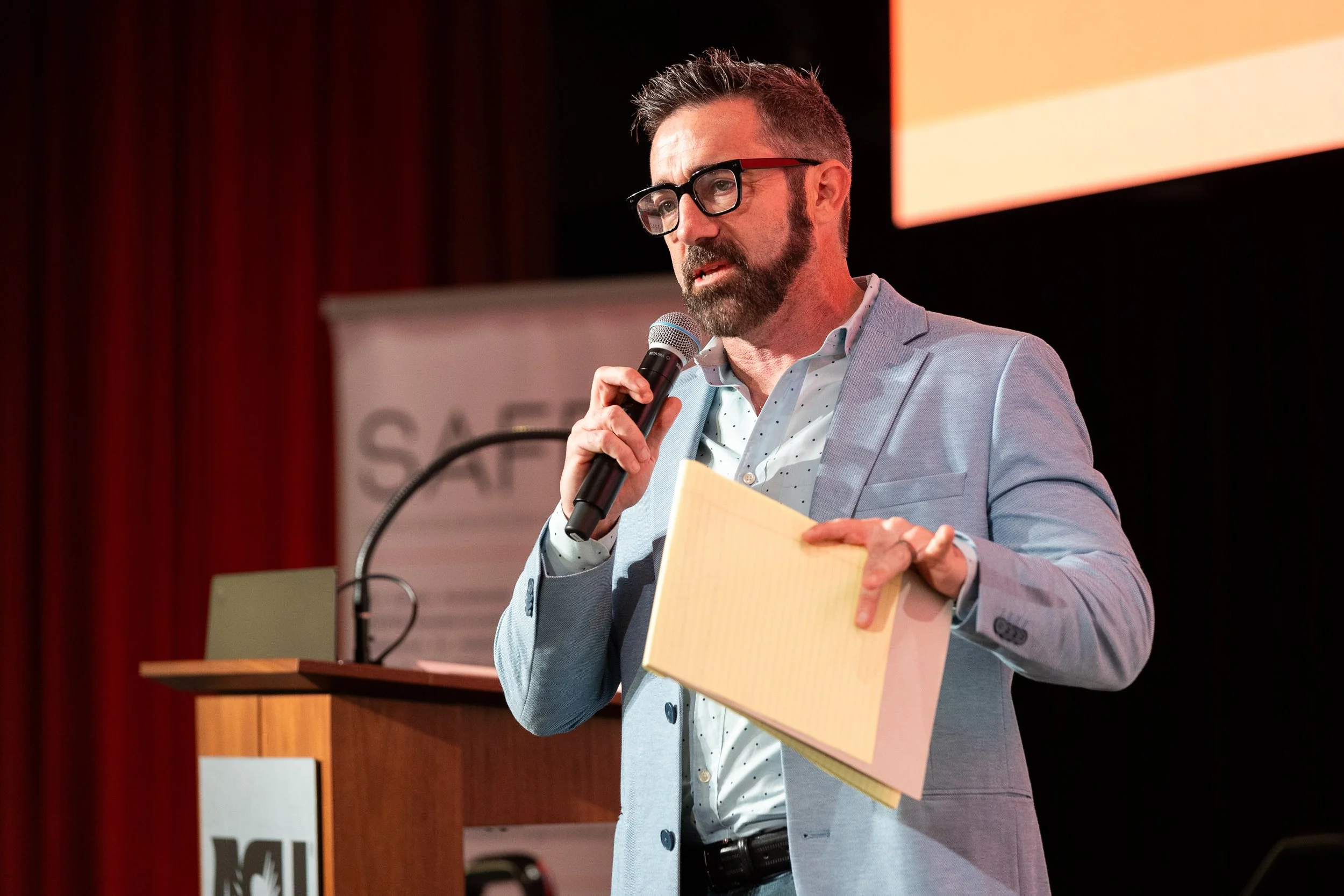


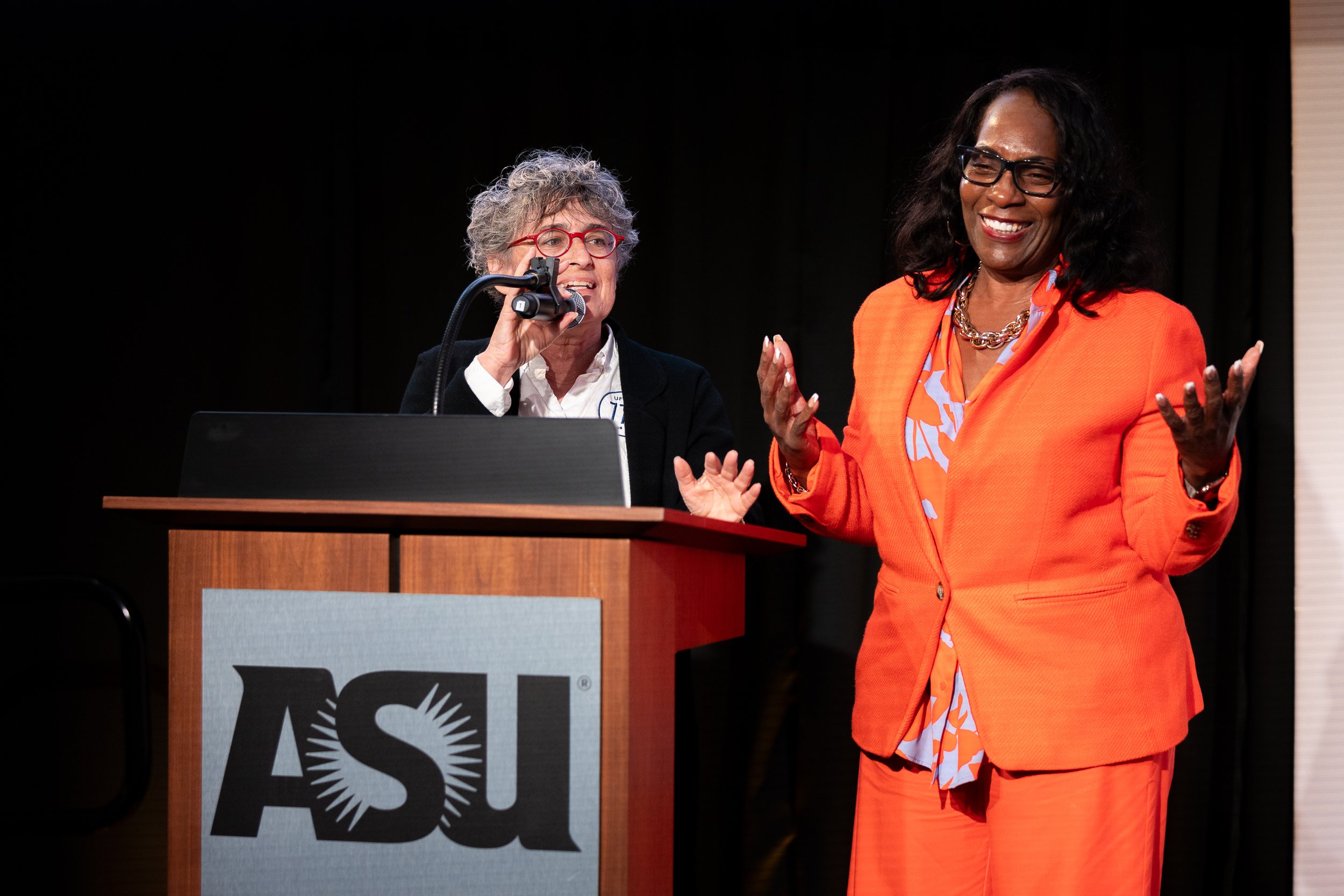
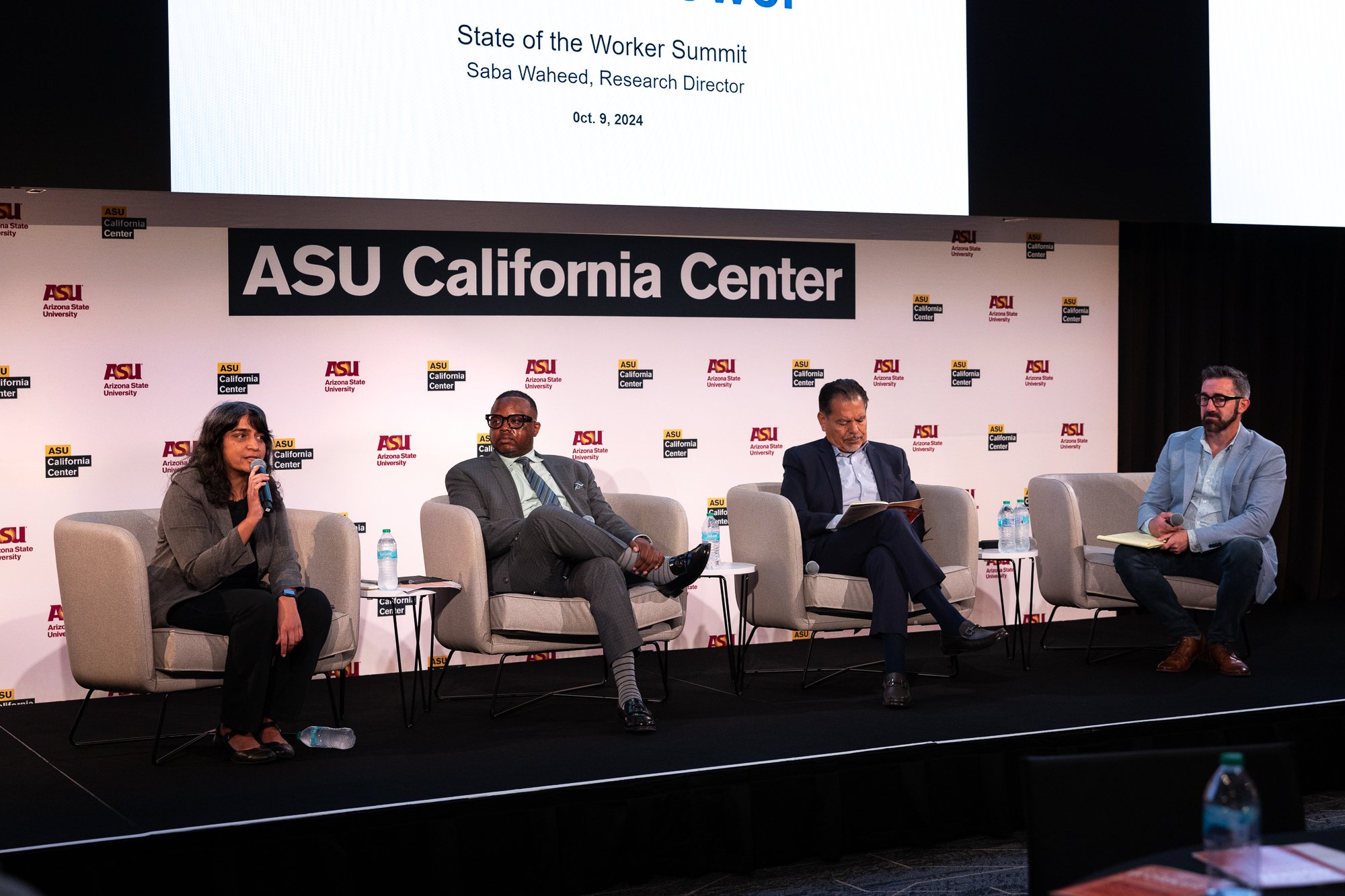




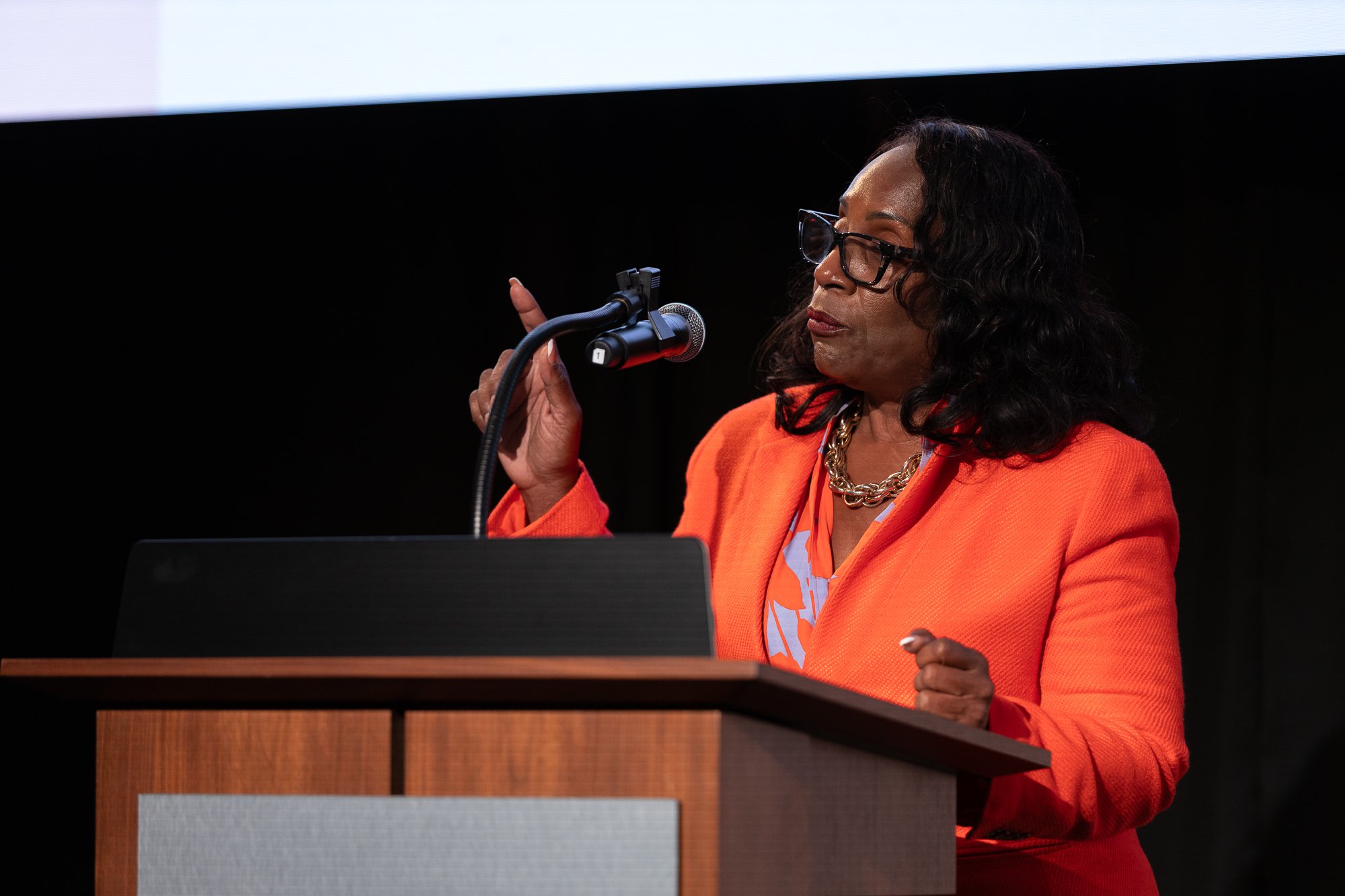
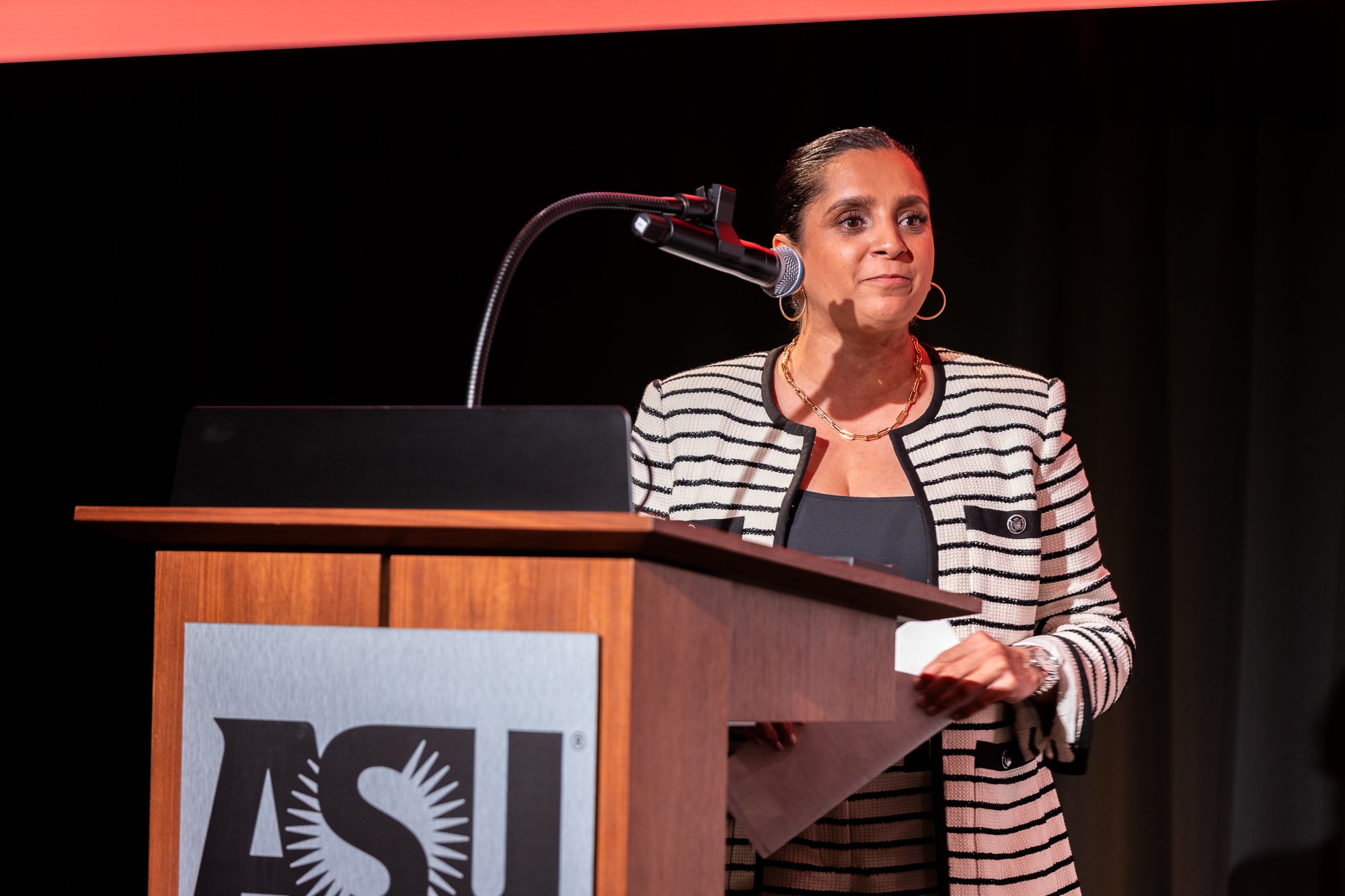
STATE OF THE WORKER SUMMIT:
IN THEIR OWN WORDS
Yvonne Wheeler
President of the LA County Labor Federation“While corporations are reaching record profits, workers are being left behind, and this must change. Workers were essential during the pandemic and remain essential afterward, which must be reflected in our investment in workers, their wages, and their protections.
To move California forward, we need policies that safeguard workers' rights and provide opportunities for “upskilling” and investment in workers. Organized labor continues to face resistance from certain industries, making it harder to secure living wages, benefits, and safe working conditions. However, the resurgence of union efforts, particularly among young people, gives us hope.”
++
Karim Webb
Entrepreneurial Activist and
Principal, Webb Investments“I always knew that the only difference between me and some of my peers was that my parents provided every opportunity I qualified for and could participate in—opportunities that others didn’t have access to. The only real difference between us was the birth lottery.
Radical inclusivity cannot simply be an attitude that says, "We welcome you to the table." It must declare, "We need you at this table, and this discussion will not work without you."
Having everyone at the table means that every time there is a business development conversation, labor needs to be present. Likewise, whenever labor is having a discussion, business must also be at the table. These conversations need to happen collectively.”
++
Saba Waheed
Director, UCLA Labor Center“For domestic workers, carwash workers, and others in the most precarious positions, it is essential to educate them about their rights and the benefits they should be accessing.
Programs like the Domestic Workers Education and Outreach Program and the California
Outreach Program are pivotal. Currently, there is a required week-long training in high school to teach students about their workplace rights will help cultivate a consciousness of being a worker early on, ensuring they are well-prepared for the workforce.”
++
Jeffery Wallace
President and CEO, LeadersUp“It’s important to debunk the false narrative that people from marginalized communities are liabilities when, in reality, they are assets. The potential of these communities has largely been untapped because they lack access to the resources and opportunities that could shift their trajectory and ensure they have a fair shot at achieving the American Dream.
Our goal is to lead a movement that turns the tide of the economy by anchoring to values that normalize safety, promote equitable opportunity, and distribute and share power—these being the key elements to a more inclusive economy.
If we want to shift from surviving to thriving, we must fundamentally rethink how we invest in our most valuable asset: people. America, one of the largest economies in the world, was built on the foundation of free labor. It’s time to take action to right-size our economy, and we can begin in California.”
++
Dr. Fernando Guerra
Professor of Political Science,
Loyola Marymount University“The government holds tremendous resources and has the capacity to make significant investments that benefit society. The goal is to make government more responsive to individuals, ensuring it meets their needs effectively and equitably.
One of the most pressing issues affecting the poor is affordable housing—not public housing that segregates, limits, and isolates—but social housing that integrates and promotes inclusivity. The City of Los Angeles government has built multi-billion-dollar capital projects, such as those by the Department of Water and Power. Using a similar model, we can develop social housing.
Historically, we have allowed government to take an activist role in many areas, but rarely on social issues. The L.A. government works remarkably well when it partners with capital and capitalists. Now, let’s make it work for the poor.”
++
Jim Araby
Strategic Director, UFCW Local 5“Our economy has undergone a restructuring that has affected people’s ability to build wealth and fully engage in the democratic process needed to shape the future we envision. The summit serves as a platform to harness collective power and drive the necessary change.”
++
Alfred Fraijo Jr.
Founder and CEO, Somos Group“This Summit is the first of what we hope will be many such events to address some of the critical issues of our time. We felt the state of the worker was the place to start because it lies at the root of so many other critical issues: wealth inequality, housing insecurity, lack of educational opportunity...the list goes on.
The Summit seeks to address some of the questions that arise from these fundamental issues, a process that we hope will begin the journey back to a culture that puts the worker at the center of discussions about the economy and building abundance for everyone.
Major government interventions — the American Recovery and Reinvestment Act, the Affordable Care Act, the Bipartisan Infrastructure Law — have sought to level the playing field for working Americans but have not transformed the structural dynamics that inhibit the creation of decent-paying jobs, jobs that can permanently transform workers' lives and the American economy.
The time for tinkering around the edges is past. It will require a movement, This is a moment of tremendous challenge, but also one of great opportunity.”
++
ABOUT
STATE OF THE WORKER SUMMIT
The State of the Worker Summit will bring together business and labor leaders, public officials, policy experts and academic specialists to discuss the current state of the worker and identify ways that will build a robust economy anchored in job creation across industries and promote economic growth among all Californians.
Speakers and panelists will seek creative solutions to some of the state's most pressing economic challenges, focusing on public-private partnerships that promote investment and generate jobs in underserved communities. The far-ranging discussions will address challenges to the economy that have resulted from the impact of the Great Recession and the Covid-19 pandemic and accelerating political and demographic trends that have had significant impact on the lives of working people and the fortunes of the business community
Somos Group CEO Alfred Fraijo Jr. will greet guests to the summit, followed by businessman and entrepreneurial activist Karim Webb, who will deliver the keynote speech. The keynote will be followed by a panel of experts who will provide context and substance to the day’s discussions.
These conversations will address the intersection of efforts to create jobs and build the economy in a broader context that includes issues of wealth inequality, affordable housing, social and economic mobility, and the expansion of educational and training opportunities.
The State of the Worker Summit is conceived and produced by SAFER (Somos Accelerator for Economic Resilience). SAFER is the non-profit affiliate of Somos Group, a legal and land-use planning firm dedicated to partnering with public- and private-sector clients to build and sustain community resilience, promote economic development, increase social equity and accelerate prosperity.
Upcoming Event
October 30, 2025
ASU California Center
Time: TBD
1111 S. Broadway Suite 100
Los Angeles, CA 90015
State of the Worker Summit
The Summit is hosted by SAFER (Somos Accelerator for Economic Resilience) the non-profit. affiliate of Somos Group. SAFER focuses on providing support and technical assistance to mission-driven organizations that seek to use land and real estate to promote economic development, good jobs and social equity for historically under-resourced communities and the society at large.
This will be an opportunity for you to engage in conversation with some of the foremost labor, policy, and business leaders in the state on some of the most critical issues of our time.
